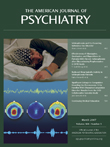The Effectiveness of Assertive Community Treatment for Homeless Populations With Severe Mental Illness: A Meta-Analysis
Abstract
Objective: The purpose of this study was to assess the effectiveness of assertive community treatment in the rehabilitation of homeless persons with severe mental illness using a meta-analysis. Method: A structured literature search identified studies for review. Inclusion criteria were the use of an assertive community treatment-based rehabilitation treatment in an experimental or quasi-experimental model, exclusive treatment of homeless subjects, and follow-up of housing and psychiatric outcomes. Two reviewers independently abstracted data on methodology and outcomes from included studies. The authors calculated effect differences, summary effects and confidence intervals (CIs) for housing, and hospitalization and symptom severity outcomes. Results: Of the 52 abstracts identified, 10 (19%) met inclusion criteria. Of these, six were randomized controlled trials, and four were observational studies, totaling 5,775 subjects. In randomized trials, assertive community treatment subjects demonstrated a 37% (95% CI=18%–55%) greater reduction in homelessness and a 26% (95% CI=7%–44%) greater improvement in psychiatric symptom severity compared with standard case management treatments. Hospitalization outcomes were not significantly different between the two groups. In observational studies, assertive community treatment subjects experienced a 104% (95% CI=67%–141%) further reduction in homelessness and a 62% (95% CI=0%–124%) further reduction in symptom severity compared with pretreatment comparison subjects. Conclusions: Assertive community treatment offers significant advantages over standard case management models in reducing homelessness and symptom severity in homeless persons with severe mental illness.



